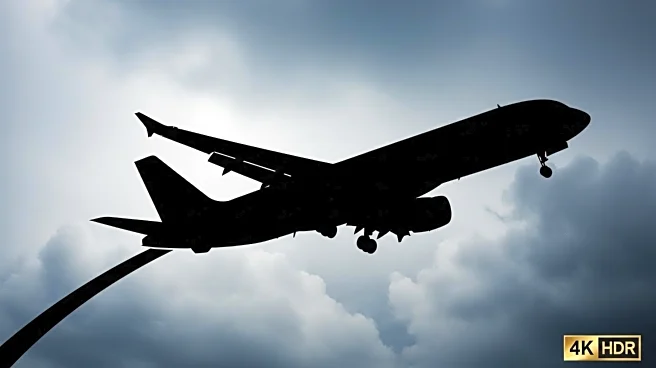What's Happening?
Spirit Airlines has filed for Chapter 11 bankruptcy protection for the second time within a year, citing ongoing challenges in the competitive leisure travel market in the United States. The airline initially filed for bankruptcy in November and emerged from it by March. However, Spirit has continued to face significant threats due to competition and weak demand, prompting another bankruptcy filing. Dave Davis, Spirit's chief executive, stated that the previous bankruptcy focused on reducing debt and raising capital, but the current filing aims to leverage more strategic tools to better position the airline for future operations. Davis, who took over as CEO in April, emphasized the need for a comprehensive approach to address the company's challenges.
Why It's Important?
The bankruptcy filing by Spirit Airlines highlights the ongoing struggles faced by budget carriers in the U.S. leisure travel sector. The airline's financial difficulties underscore the intense competition and fluctuating demand in the industry, which can significantly impact profitability and operational stability. This development may lead to further consolidation in the airline industry, affecting market dynamics and consumer choices. Additionally, Spirit's financial woes could have broader implications for its employees, creditors, and stakeholders, potentially leading to job losses and financial losses for investors. The situation also raises questions about the sustainability of low-cost airline models in the current economic climate.
What's Next?
Spirit Airlines plans to implement a strategic approach to address its financial challenges, which may involve reducing its market presence and fleet size to lower debt and lease obligations. The company aims to generate substantial operating savings through these measures. Stakeholders, including investors and employees, will be closely monitoring the airline's restructuring efforts and its ability to stabilize operations. The broader airline industry may also react to Spirit's situation, potentially influencing competitive strategies and market positioning among other carriers. Regulatory bodies may scrutinize Spirit's restructuring plans to ensure compliance with bankruptcy laws and protect consumer interests.










